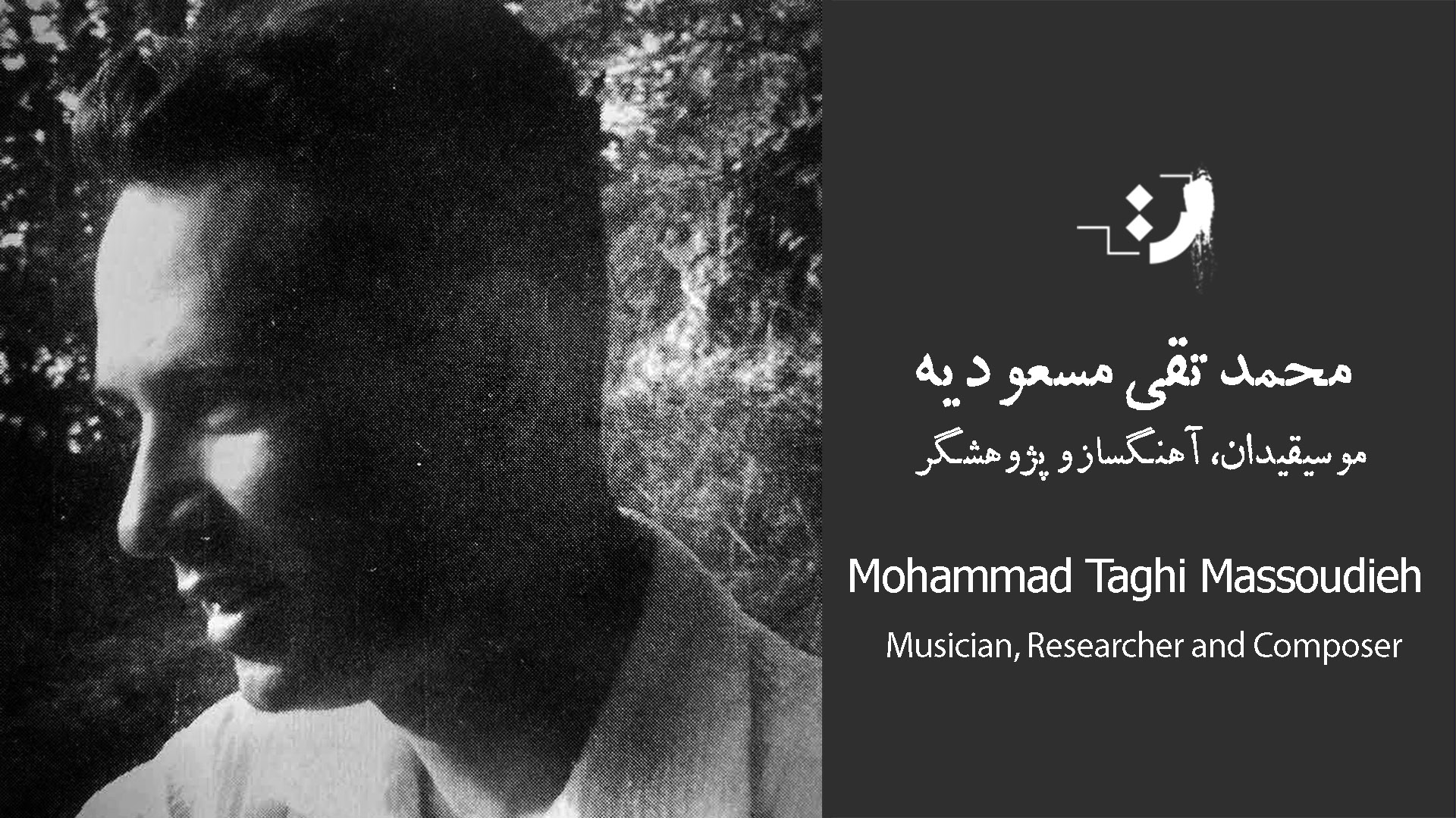Mohammad Taghi Massoudieh

Biography
Mohammad Tagahi Massoudieh ( April 10, 1927 – February 1, 1999) was an Iranian musician, researcher, music author and composer. He has been referred to as the “Father of Iranian Ethnomusicology“.
Mohammad Tagahi Massoudieh was born on April 10, 1927, in Mashhad and from an early age he learned to play the violin and became interested in music. After completing his primary education in the Elmiyeh primary school in Mashhad, he received his diploma in 1945 from Shahreza High School in the same city. At the age of 18, he moved to Tehran with his family. In 1946, he received his literary diploma from Dar ul-Funun High School in Tehran.
Massoudieh completed his higher education in 1950 at the Faculty of Law and Political Science, University of Tehran, and at the same time studied music at the Tehran Conservatory of Music. He received a law degree and a diploma in music. After that, he left for France to continue his studies at the National Conservatory of Music in Paris. After passing the entrance exam for the Paris Conservatory to study the violin, he went to see Professor Lynn Talwell. He took such lessons as Harmony with Georges Dandello and Counterpoint with Noel Galan from masters of European classical music. In 1954, he received a master’s degree in harmony from the Paris Conservatory, which was a special event in its own right because until then, no Iranian had been able to receive a degree in music with a focus on harmony from this center.
Mohammad Taghi Massoudieh succeeded in going to Germany to continue his studies at the Leipzig High School of Music, using the scholarship of the International Students’ Union. After leaving for Germany to study, Massoudieh chose the field of composition and benefited from two of the most prominent European composers, Otmar Gerster Johannes Viruch. At the age of 36, Massoudieh received a doctorate in composition from the Leipzig Conservatory in Germany.
Massoudieh then moved to Cologne, where he studied musicology (historical musicology) under Carl Gustav Felerer and ethnomusicology (comparative musicology) under Marius Schneider at the University of Cologne. In 1968, he succeeded in obtaining a specialized doctorate in this field. His doctoral dissertation entitled “Avaz e Shour” was published in 1968, in the city of Regensburg, wandis one of the most authoritative books in German about Iranian classical music. After graduating, he returned to Iran and studied at Tehran University of Fine Arts.
Massoudieh for the first time introduced many specialized courses related to music to the University of Tehran, including the history of European music, advanced and practical harmony, form and analysis, harmonics, orchestration, transcription, and various ethnomusicological topics. Massoudieh’s efforts to teach and transfer the scientific concepts of music earned him the title of the father of Iranian ethnomusicology. He did a lot of research in the field of Iranian folk music and traditional Iranian music and proposed many scientific theories in various forms of Iranian music that had no precedent until then.
- Birthday: April 10, 1927
- Death: February 1, 1999
- Birthplace: Mashhad, Khorasan, Iran
Musician, Researcher and Composer
